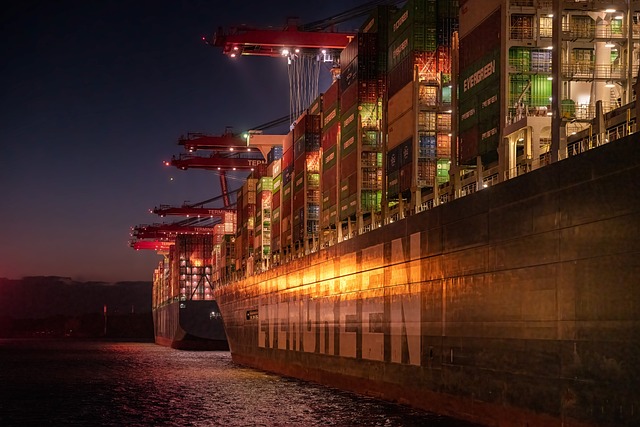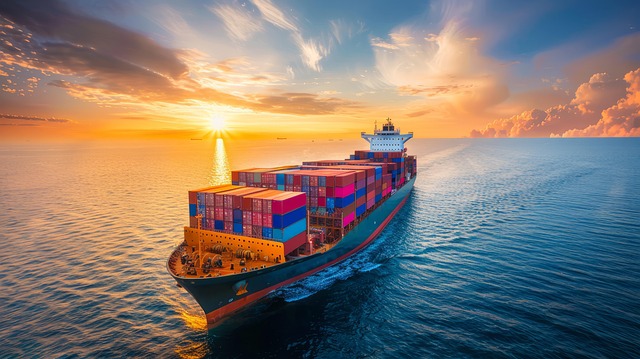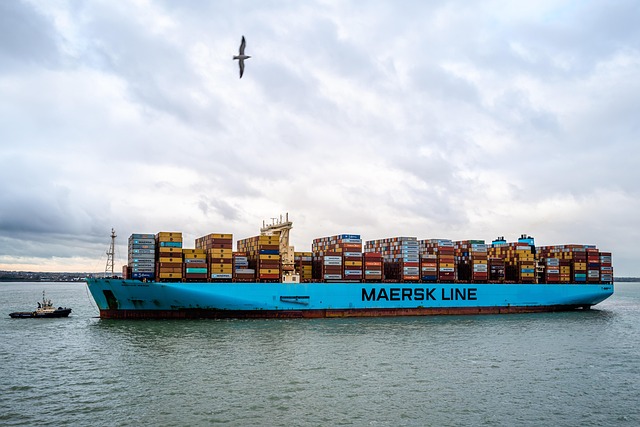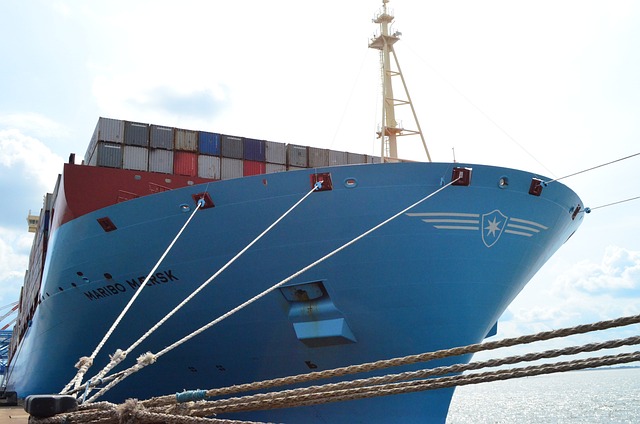Insulated shipping containers are revolutionizing logistics by providing advanced temperature control for sensitive goods like pharmaceuticals, food, and chemicals. With customizable dimensions, these specialized containers offer flexibility through leasing or renting, while their state-of-the-art insulation and climate control systems ensure optimal conditions during transit. This technology streamlines global supply chains, enhancing efficiency, reducing waste, and keeping cargo fresh, making them a key component in modern container shipping.
Insulated shipping containers are transforming the logistics industry by ensuring temperature-controlled delivery, a game-changer for transporting temperature-sensitive goods. This article delves into the modern solution these containers provide, explaining their innovative design and advanced insulation technologies that maintain optimal temperatures during transit. We explore their numerous benefits for businesses and logisticians, as well as different types tailored to diverse applications, revolutionizing the way we ship perishable items.
- Understanding Insulated Shipping Containers: The Modern Solution for Temperature-Sensitive Goods
- How Do Insulated Containers Maintain Optimal Temperatures During Transit?
- Benefits of Using Insulated Shipping Containers for Businesses and Logisticians
- Exploring Different Types of Insulated Containers and Their Applications
Understanding Insulated Shipping Containers: The Modern Solution for Temperature-Sensitive Goods

Insulated shipping containers are revolutionizing the logistics industry by offering a modern solution for temperature-sensitive goods. These specialized containers are designed to maintain optimal conditions during transit, ensuring that perishable items like pharmaceuticals, food products, and chemicals remain fresh and safe for their intended destinations. By leveraging advanced insulation technologies and climate control systems, insulated shipping containers provide a controlled environment that protects against extreme temperatures, humidity, and other environmental factors.
Unlike traditional freight containers or sea containers, insulated shipping containers are tailored to meet the unique needs of temperature-controlled transport. They come in various dimensions and capacities, catering to different shipping requirements. From refrigerated containers for perishables to modular offices equipped with climate control, these versatile units can be leased or rented based on specific needs. This flexibility, coupled with container shipping’s efficiency and intermodal compatibility, makes insulated shipping containers a game-changer in the global supply chain, ensuring that goods arrive in the same condition they were shipped in.
How Do Insulated Containers Maintain Optimal Temperatures During Transit?

Insulated shipping containers maintain optimal temperatures during transit through a combination of advanced insulation and temperature control systems. These containers are designed with thick, high-performance insulation materials that trap and retain cold or hot air, depending on the requirement. This insulation acts as a barrier, minimizing heat transfer between the container’s interior and exterior environments.
Moreover, they often feature state-of-the-art refrigeration units or heating systems that can be precisely controlled. These systems monitor and regulate temperature in real-time, ensuring the cargo stays within the desired range throughout the entire journey. Whether it’s a sea container, freight container, or refrigerated container, this technology enables safe and efficient transport of perishable goods, pharmaceuticals, or any temperature-sensitive cargo, making them indispensable in global supply chains and container shipping.
Benefits of Using Insulated Shipping Containers for Businesses and Logisticians

Using insulated shipping containers for temperature-controlled delivery offers significant advantages for businesses and logisticians alike. These specialized containers are designed to maintain specific internal temperatures, ensuring that perishable goods remain fresh during transit. This is particularly crucial in the food, pharmaceutical, and chemical industries where even minor temperature fluctuations can render products unsafe or ineffective.
Moreover, insulated shipping containers enhance efficiency in logistics operations. By employing these containers, businesses can streamline their supply chain processes, reduce waste, and minimize damage to cargo. With options ranging from refrigerated to specialized containers like flat racks and open tops, businesses can tailor their shipping solutions to meet unique requirements, ensuring safe and timely delivery of goods worldwide via sea, land, or air transport (container shipping, container transport). Additionally, leasing or renting these containers (container rental, container leasing) provides flexibility, while container depots serve as vital hubs for efficient container management and storage (storage container, container depot).
Exploring Different Types of Insulated Containers and Their Applications

The world of insulated shipping containers offers a diverse range of options tailored to specific needs, from temperature-sensitive pharmaceuticals to perishable food items. Each type of insulated container is designed with unique features and applications in mind, ensuring efficient and safe transport across various industries. One commonly known variant is the refrigerated container, an indispensable tool for maintaining the integrity of time-sensitive cargo. These containers are equipped with advanced cooling systems, making them ideal for shipping fresh produce, dairy products, and even live animals over long distances.
Beyond refrigerated containers, there’s a plethora of other specialized options. For instance, the high cube container provides increased vertical space, perfect for bulky but lightweight items. Open-top containers, as the name suggests, offer unobstructed loading and unloading, making them suitable for shipping unconventional shapes and sizes. Modular containers, on the other hand, are designed for versatility, allowing businesses to customize their internal layout to accommodate specific cargo requirements. This flexibility extends to various industries, from temporary office spaces to specialized storage solutions at container depots.
Insulated shipping containers are revolutionizing temperature-controlled delivery, offering a modern solution for businesses and logisticians to manage sensitive goods. By understanding how these innovative containers maintain optimal temperatures during transit and exploring their diverse applications, companies can enhance their supply chain efficiency and ensure the integrity of their products. The benefits of adopting insulated shipping containers are clear, making them an essential tool in today’s globalized market.
